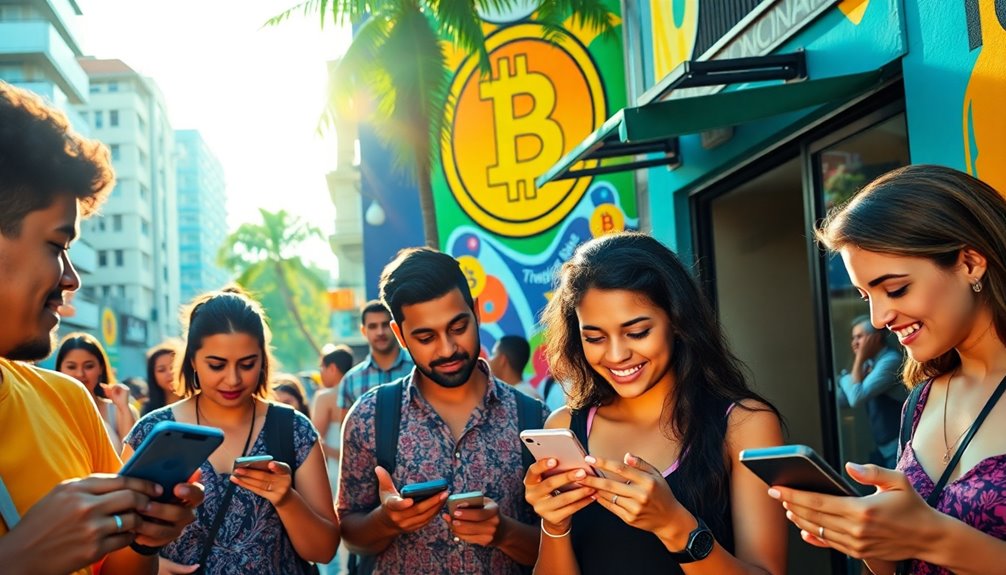You might find it intriguing that nearly 15% of Brazilians are considering a shift from traditional bank accounts to cryptocurrencies. This trend signals a growing desire for financial stability amidst economic challenges like high inflation. As more citizens look for reliable alternatives, the acceptance of digital currencies is on the rise. What does this mean for the future of banking and finance in Brazil? The implications could be far-reaching.

As Brazil grapples with economic instability marked by high interest rates and inflation, many citizens are turning to cryptocurrencies as a viable financial alternative. With a GDP of $2.4 trillion, Brazil stands as Latin America's largest economy and cryptocurrency market. The excessive debt-financed spending by the current administration has only compounded economic uncertainty, pushing you and many others to seek more reliable financial solutions.
Recent data from a YouGov poll reveals that nearly 15% of Brazilians would be willing to switch from traditional bank accounts to cryptocurrencies. You might find this trend particularly compelling, especially considering the alarming inflation rates that have made stablecoins an attractive option for saving and transferring money. The stability these digital currencies offer can be a soothing balm for your financial worries, especially when the value of the Brazilian real continues to wane. Crypto imports totaled $15 billion from January to October 2024, reflecting a growing acceptance of digital currencies.
The surge in crypto imports, which hit $15 billion from January to October 2024—a staggering 63% increase from the previous year—indicates a growing acceptance of digital currencies. You'll notice that a whopping 90% of Brazil's crypto activity revolves around stablecoins, primarily used for cross-border payments. This shift isn't just a fad; it's a response to the pressing economic challenges that many face daily.
While Bitcoin transactions have also seen significant growth, the regulatory landscape is evolving as the government works on implementing new rules aimed at ensuring transparency and preventing money laundering. These upcoming regulations, including Know Your Customer (KYC) and Anti-Money Laundering (AML) requirements, could play a crucial role in boosting your confidence in cryptocurrencies. Enhanced consumer protection measures will also help safeguard users like you from fraud and market manipulation.
Interestingly, public perception is shifting, with a majority of Brazilians viewing crypto as the future of finance. If you're among the 85% of crypto users who believe that investing in these digital assets offers greater financial freedom, you're not alone. The growing awareness of self-custody and exchange protections highlights the importance of education in this space.
Ultimately, as you consider the benefits of cryptocurrencies, stablecoins stand out for their ability to facilitate fast and transparent transactions while providing a hedge against inflation. With a landscape that's rapidly evolving, it's clear that the willingness to embrace cryptocurrencies is a reflection of the broader quest for financial stability in uncertain times.










